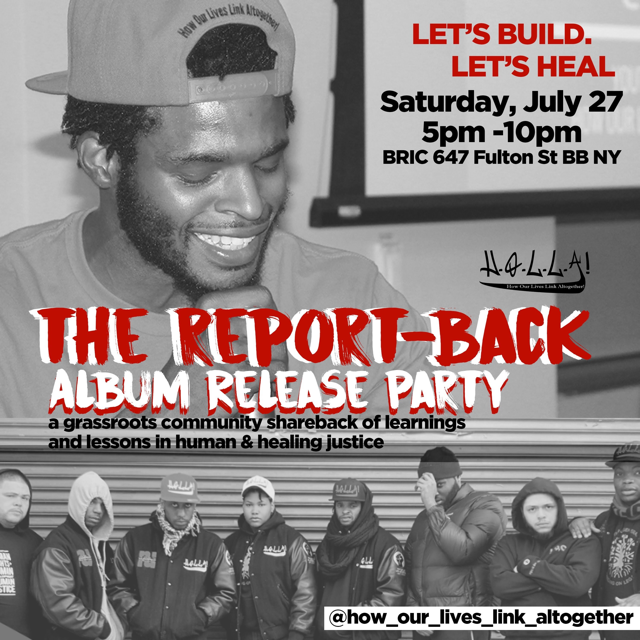Featured Articles
Young Adults Tackle Justice Reform
By Zegale Talmadge
Staff writer
Eight years ago, when he was 17, Alex Davis was convicted of robbery and assault. Instead of being sent to prison, he spent a month at Rikers Island Correctional Facility and, afterward, began seven years on parole.
“I was really depressed when I came out,” Davis said. “I had a f*****-up parole officer, I was still in survival mode. Whatever they called breaking the law, I was still doing because I had to survive.”
He was not arrested for committing more crimes or for any technical violations of his parole, Davis said, counting himself lucky. But what really turned his life around was becoming part of How Our Lives Link Altogether (H.O.L.L.A), a project training 18- to 24-year-old formerly incarcerated persons to, through various media, tell their stories and running community programs aimed at keeping black and brown young people out of courts, jails and prisons.
On July 27, H.O.L.L.A hosts its, “The Report-Back” album release party at BRIC in Brooklyn.
 “The center and H.O.L.L.A. helped me with my dreams to make music … “ said Davis, who’s on the album. “Not many people from my block or my ‘hood got that opportunity.”
“The center and H.O.L.L.A. helped me with my dreams to make music … “ said Davis, who’s on the album. “Not many people from my block or my ‘hood got that opportunity.”
“We can’t just talk about ‘You guys are the future,’ ” said Kyung-Ji “K.J.” Rhee, deputy director of the Center for NuLeadership on Urban Solutions, a Brooklyn-based national think tank that runs H.O.L.L.A. “We have to do the due diligence, the work, and build the relationship because, without a relationship, there is no dialogue or learning.”
Part of what H.O.L.L.A. aims to do is create a sense of family and community for formerly incarcerated youth and young adults.
For Davis, H.O.L.L.A. and NuLeadership have helped him to “find himself,” and not to see himself as just another black male unfairly targeted by police or as a victim of the foster care system. He spent part of his childhood in different foster homes.
“I’d probably be in prison if it wasn’t for the center,” Davis said, referring to NuLeadership. That criminal justice think tank and reform organization, run by formerly incarcerated persons, including ones with PhDs, was founded by Eddie Ellis, a former Black Panther, Open Society Fellow and prison reformer who worked in the United States and elsewhere on the globe. Ellis died in 2014.
Among other goals, NuLeadership and like-minded organizations are trying to change even the language used to describe the formerly incarcerated and the institutions that once held them. As a starting point, for example, Rhee said, “human justice,” rather than “criminal justice,” better describes what NuLeadership and H.O.L.L.A. aim to achieve.
The roughly 70 youth and young adults involved in H.O.L.L.A. and NuLeadership are an important part of changing that dialogue, she said. They also are important in the work of changing the living conditions, especially poverty, that factor into why so many black and brown people are incarcerated.
“In the last 30 years that [we] have funded in all these programs,” Rhee said, referring to prison reform efforts, “the recidivism rate [dropped] is really low but the [social] conditions … are exactly the same. Human development does not mean you just stop people from going to jails and prisons; you have to address the prison conditions that exist in these neighborhoods.”
“We take out knowledge from our ancestors, and other movements that have come before us, to do our work,” Davis said. “What kind of human do we need? What does human look like?”
That question lies at the core of NuLeadership’s and H.O.L.L.A.’s mission of transforming young lives by deepening their knowledge about a range of justice-related topics, and persuading them to act.
“You have to answer the call,” NuLeadership’s Rhee said. “Now, what are you going to do about it.”

